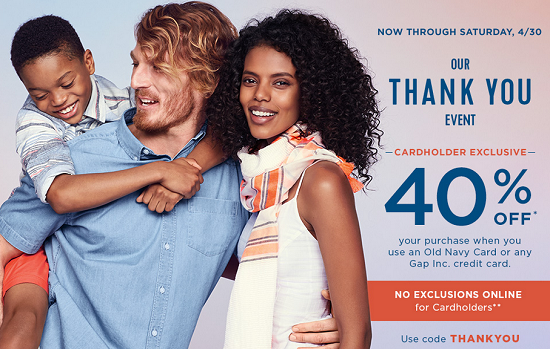One of the greatest hurdles for Black entrepreneurs, especially in the U.S., is securing sales and support from corporations and ad agencies. Despite the increasing focus on “diversity and inclusion” initiatives, many companies still fall short of genuine representation, which significantly affects the opportunities for Black-owned businesses to secure partnerships or sales contracts.

Token Representation and the Issue of “Plants”
A troubling trend within corporations is the placement of Black individuals, often Black women, in high-profile diversity roles without granting them real decision-making power.
In many cases, these individuals are hired as symbolic figures or “plants” to satisfy diversity quotas, while the true power remains with non-Black decision-makers.
Several Black women have even filed lawsuits alleging discrimination within these very positions, pointing out that their roles were often limited to surface-level involvement. This pattern has led to frustration among Black professionals and entrepreneurs who engage with these companies, as they realize that diversity is being used more as a marketing tool than a true commitment.
Corporate Reluctance to Support Black Businesses
Another significant issue is the reluctance of many corporations to invest in or support Black-owned businesses, even when the data shows that these companies have a large Black consumer base.
The lack of familiarity or perceived benefit often causes corporations to overlook Black-owned businesses, favoring more established (and often White-owned) companies, even when their products or services are not as well-aligned with Black consumer needs. This hesitancy is rooted in ignorance or the fear of taking risks on lesser-known companies, which disproportionately affects Black entrepreneurs.
Diversity in Advertising: Missing the Mark

There has also been a significant trend in advertising that attempts to showcase diversity by using interracial couples as a symbol of inclusivity. While this may seem “progressive” on the surface, several Black consumers view it as an insult, as it sidesteps the portrayal of Black families and their experiences, reinforcing a harmful notion that Black family units are less essential, less marketable and non-existant.
This practice reflects a deeper issue in the hiring practices within marketing and advertising firms. Many companies tasked with promoting diversity in their campaigns are staffed by white women and gay white LGBTQ members —groups that, while part of the diversity spectrum, often miss the mark when it comes to addressing the unique needs and perspectives of Black consumers.
This “diversity” ultimately feels hollow when the target audience—Black communities—feels underrepresented or misrepresented. The absolute best example of everything in this article is the 2023 movie “American Fiction” which is an accurate depicture of who black people are and how others, who want to control the narrative, want to see us and present us outside of the culture. (see trailer below or better yet see the movie)
Performative Allyship in Advertising
A particularly problematic practice is the use of Black actors in advertising campaigns that are placed in non-Black-focused media outlets, such as mainstream or predominantly white channels, rather than in platforms that Black consumers are likely to engage with. This move allows companies to fulfill diversity quotas and appear supportive of Black communities, without making a meaningful connection to those communities. This performative allyship not only alienates Black audiences but also undermines the purpose of diversity in advertising, as it becomes more about optics than authentic engagement.
A Call for Genuine Inclusion
The solution lies in authenticity—hiring decision-makers who understand the Black experience and giving real power to those hired to lead diversity efforts. While it would be better to see more black-owned agencies as a solution, they should not be blocked from making progress to tell honest and significant black stories.
Additionally, corporations and agencies need to engage with Black-owned businesses in a meaningful way, supporting those businesses not out of obligation but because of their value and the genuine connections they have with Black consumers. IT’s OK if they don’t know but it’s not OK to simply ignore the business.
Marketing strategies should be more inclusive of Black families, showing respect and acknowledgment of their role in the fabric of American life, rather than using diversity as a box to check.
Black entrepreneurs will continue to face challenges until these systemic issues are addressed with sincerity, and companies start moving beyond quotas to real, impactful change.
The current landscape of Diversity, Equity, and Inclusion (DEI) in 2024 shows a mix of progress and setbacks. Many organizations that once championed DEI are now facing challenges due to economic pressures, including budget cuts and layoffs of Chief Diversity Officers. A recent survey shows that 60% of HR professionals now believe their companies are not fully committed to DEI, a sharp drop from 71% in 2021. This decline reflects broader cutbacks, with fewer companies hiring DEI consultants and integrating diversity into leadership (Culture Amp).
Despite these challenges, there is still a strong business case for DEI. Companies with diverse teams report 19% higher revenues due to increased innovation, and employees in inclusive workplaces are significantly more engaged and productive. Research has shown that companies with high racial and ethnic diversity are 35% more likely to have better financial returns than their less diverse counterparts(World Economic Forum)(Harvard Corporate Governance Blog).
However, DEI initiatives are increasingly under scrutiny, particularly in the wake of legal challenges. Some conservative groups have raised concerns about potential reverse discrimination, resulting in legal battles and reduced support for DEI shareholder proposals (Harvard Corporate Governance Blog).
As companies navigate these pressures, the importance of genuine, data-driven DEI efforts remains crucial for long-term growth and employee retention. There is also a call for businesses to shift away from tokenism and focus on creating real opportunities for underrepresented groups.

